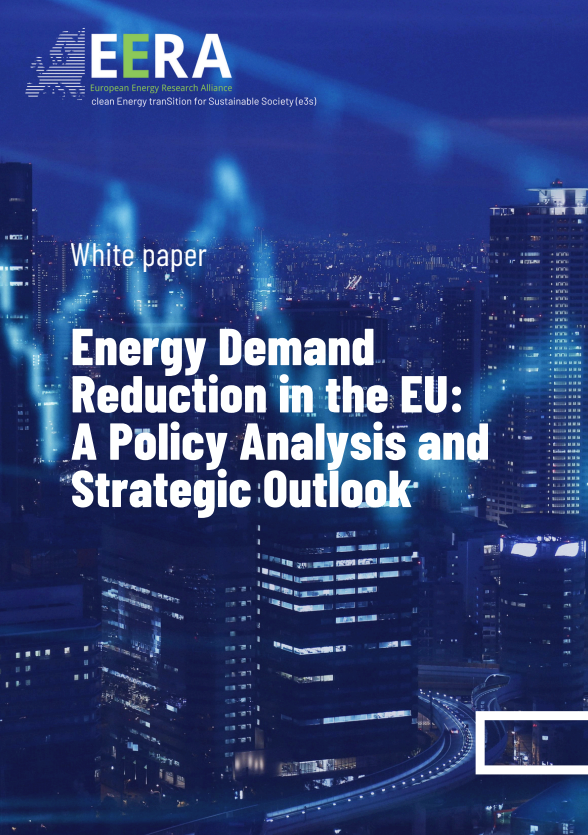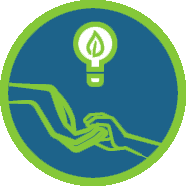
The EERA Joint Programme on clean Energy tranSition for Sustainable Society (JP e3s) has released a new white paper titled “Energy Demand Reduction in the EU: A Policy Analysis and Strategic Outlook”, presenting a comprehensive analysis of how reducing energy demand can become a cornerstone of Europe’s clean energy strategy.
As the EU faces the dual challenges of climate change and energy security, the paper highlights that lowering energy demand—through efficiency, sufficiency, and behavioural change—is not just a short-term response to crises, but a strategic necessity for achieving climate neutrality by 2050.
The white paper provides:
- A critical review of EU policies (Fit for 55, REPowerEU, Green Deal Industrial Plan) and their treatment of energy demand reduction, particularly in the household sector.
- An exploration of alternative economic models—such as post-growth, degrowth, and sufficiency frameworks—that can reshape consumption patterns and reduce systemic dependency on energy and materials.
- Policy recommendations to strengthen the role of demand reduction alongside technological innovation and supply-side measures.
Key findings show that while EU initiatives have advanced efficiency and behavioural measures, energy sufficiency remains largely absent from policy frameworks. Without explicit sufficiency strategies, the EU risks missing opportunities to reduce absolute energy consumption and ensure a just and sustainable transition.
The paper calls for:
- Integrating sufficiency as a core principle of EU energy policy.
- Expanding demand-side flexibility mechanisms and consumer engagement.
- Aligning demand reduction strategies with social equity to avoid exacerbating energy poverty.
- Enhancing institutional coordination and funding streams for sufficiency-oriented projects.
By positioning energy demand reduction as a structural and long-term strategy, the EERA JP e3s white paper provides valuable guidance for policymakers, researchers, and stakeholders committed to Europe’s 2030, 2040, and 2050 climate targets.
